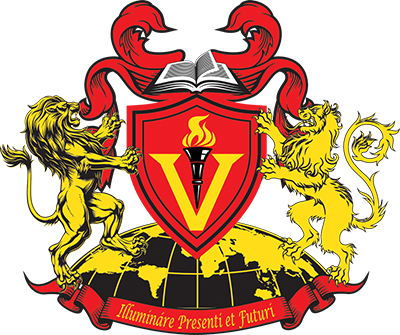As you search for a Montessori school in Winnetka, it may seem too early to wonder about the leadership abilities of your preschooler and how you can best cultivate them. After all, typical preschool tends to be about tying shoes, learning shapes, colors, letters, and numbers, and playing nice with peers. While these lessons are essential and part of a suite of foundational skills that are normal in early childhood development, in the Montessori method they are also a part of larger lessons that help to cultivate leadership qualities in students from an early age. The definition of a great leader is subject to many opinions, but there are many leadership qualities that the Montessori method promotes as it works toward its ultimate goal: educating the whole child.
Self-Discipline and Responsibility
A big difference between Montessori school in Chatsworth and more traditional schools is the student-directed, hands-on approach to education. In conventional classroom settings, students are expected to look to the authority of the teacher to know what they should be learning and the ways to learn it. In Montessori schools, the students are encouraged to drive their own education. The Montessori curriculum encompasses a wide range of disciplines but organizes them around a concrete-to-abstract learning process that relies on students to follow their curiosity and experiment until they’ve achieved mastery of the topic or skill. This internally motivated approach cultivates self-discipline and a sense of responsibility for their own learning.
Confidence
A characteristic that makes a lot of sense riding on the coattails of self-discipline and responsibility is confidence. The expectation that students take charge of their education and find the best pathways for them into the major educational disciplines (math, language, science, culture) can’t help but generate a degree of confidence in a student, no matter the age. For Montessori preschoolers, not only do they start gaining confidence in these learning topics, but they also practice and begin to learn Practical Life skills. The Montessori classroom takes time to help students learn how to care for themselves, cook, clean, and many other necessary skills. The abilities to satisfy their intellectual curiosity, take care of themselves, and contribute to the groups they are in are the underpinnings of the confidence required of leadership.
Problem-solving and Creativity
When progress and success are not measured by the ability to meet circumscribed outcomes or follow a strictly outlined pathway to those outcomes, creativity flourishes. Montessori classrooms do have developmental milestones they work toward, but they acknowledge that every child has their own pathway and that the self-knowledge of that learning process is paramount. The Montessori method fosters creativity by encouraging curiosity and then letting students explore. The prepared environment of the Montessori classroom provides the developmentally appropriate resources for students to evaluate educational challenges from multiple angles, and Montessori teachers emphasize problem-solving skills over finding the “right” solution. This approach serves students long past their tenure in their Montessori school.
Empathy
At every stage of the Montessori education, care for others and care for the environment is woven into the school day and each lesson. The earliest lessons in Practical Life skills, introduced in preschool, invite students to think about the care for their classroom environment as an essential role each student has must play in order for the classroom to function. This idea of being a relied-upon and being an important part of a larger group is a simple and powerful lesson in civics. When this awareness of how every person and their actions can impact their environment and the people around them is combined with the Montessori imperative of mutual respect – the foundation of the Montessori method that means respect for the ideas, needs, and abilities of every member of the classroom, from teachers to students – it makes a powerful recipe for real empathy.
However you define a great leader, its easy to see how these characteristics – empathy, confidence, creativity, responsibility – can stem from a Montessori education and how valuable that groundwork can be, no matter your child’s paths and pursuits in their childhood and adulthood. It is funny to think that, if the Montessori method builds great leaders, it does not do so deliberately. In her pursuit of a better method of education, Dr. Maria Montessori first and foremost sought to cultivate an individualized, developmentally appropriate learning process so that, ultimately, students learn how to be life-long learners and love learning. Her aim wasn’t to create the next set of great leaders. Really, she was determined to educate the whole child, and it is a happy coincidence that those children make for great leaders in their community.
Valor Montessori Prep’s goal is to develop confident, competent, self-disciplined and driven individuals, who can work cooperatively for the benefit of society. Schedule a tour of our Montessori preschool to learn more!

